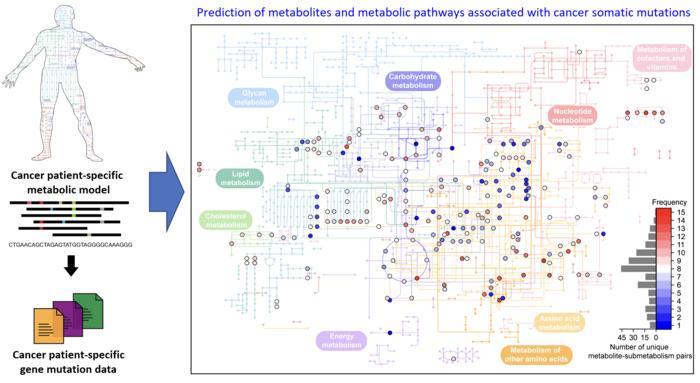Notable Research Uncovers Critical Connection Between Inflammation and
JERUSALEM, Israel, December 31, 2024 – In a groundbreaking interview with Genomic Press, renowned neuroscientist Professor Raz Yirmiya opens a window into the intricate workings of the brain and its relationship to mental health, particularly focusing on depression. His insights shed light on the critical connection between inflammation and depression, an area that has garnered […]


JERUSALEM, Israel, December 31, 2024 – In a groundbreaking interview with Genomic Press, renowned neuroscientist Professor Raz Yirmiya opens a window into the intricate workings of the brain and its relationship to mental health, particularly focusing on depression. His insights shed light on the critical connection between inflammation and depression, an area that has garnered increasing attention in recent years. The findings unveiled in this interview promise to challenge established paradigms and lead to innovative therapeutic approaches for treating depression.
Professor Yirmiya is the head of the Laboratory for Psychoneuroimmunology at the Hebrew University of Jerusalem, where his research has fundamentally reshaped our understanding of depression’s biological mechanisms. His pioneering studies have moved beyond the traditional focus on neurotransmitters to explore the role of the immune system and inflammatory processes in the brain. This shift marks a significant development in the field of neuroscience, potentially leading to more effective treatment methods for those suffering from depressive disorders.
Historically, depression has often been viewed through the lens of psychological or pharmacological frameworks. However, Yirmiya emphasizes the importance of recognizing the underlying biological factors that contribute to this mental health condition. Through his research, he has discovered that stress—considered a major trigger for depression—can initiate inflammatory processes in the brain. These findings suggest that even in the absence of overt inflammatory diseases, the inflammatory system can play a crucial role in the onset and persistence of depressive symptoms.
In his multidisciplinary approach, Yirmiya harnesses sophisticated animal models combined with human studies to forge a comprehensive understanding of how inflammation influences mood and cognition. His work illustrates that immune responses to stress can provoke significant changes in neural circuits, ultimately leading to alterations in emotional regulation and cognitive function. This linkage between stress, inflammation, and depression has opened up new avenues for targeted interventions that could vastly improve the quality of life for individuals suffering from mood disorders.
Professor Yirmiya’s journey into neuroscience is as compelling as his research. Formerly a musician, he found himself at the crossroads of creativity and scientific inquiry, leading him towards a career that would profoundly impact the understanding of brain health. His unique perspective as someone who straddled the worlds of art and science allows him to approach research questions with a distinct lens, contributing to his innovative breakthroughs in the field.
One of the most compelling aspects of Yirmiya’s work is the focus on the cellular players involved in the inflammatory process, particularly microglia. These immune cells are integral to maintaining homeostasis in the brain but can also contribute to pathological conditions when activated excessively. Yirmiya’s research has elucidated the mechanisms by which microglia respond to stress and how this interaction may trigger depression. By profiling inflammatory responses in relation to mood states, his lab is pioneering efforts to identify potential therapeutic targets.
The implications of Yirmiya’s findings extend well beyond academic discourse. His work raises crucial questions about how individual differences in inflammatory responses might guide the development of personalized treatment strategies for depression. By understanding an individual’s specific inflammatory profile, it may be possible to tailor interventions that are more effective and targeted, representing a departure from the one-size-fits-all approach typically employed in pharmacological treatments.
Moreover, the potential to harness the inflammatory system as a therapeutic target introduces exciting possibilities for novel antidepressant treatments. Yirmiya emphasizes that rather than solely seeking to suppress inflammation, a nuanced understanding of how to modulate these processes could lead to better outcomes for patients. This perspective advocates for a balanced approach, recognizing that both the activation and suppression of inflammation can produce depressive symptoms, thereby necessitating a sophisticated strategy in treatment methodologies.
As the dialogue around mental health continues to evolve, Yirmiya’s research signifies a paradigm shift that could redefine how depression is conceptualized and treated. The intersections of neuroscience, immunology, and mental health are becoming an increasingly relevant space for exploration, heralding new opportunities for research and innovation in the therapeutic landscape.
Real-world application of these insights is gaining momentum, and Professor Yirmiya is optimistic about the future of psychiatric treatments informed by these discoveries. His vision includes a landscape where clinicians can seamlessly integrate knowledge of inflammation into their practice, ultimately leading to more effective and individualized care for patients suffering from depression.
In conclusion, Professor Raz Yirmiya’s contributions to the field of neuroscience are both timely and profound. His focus on the inflammatory underpinnings of depression is not just a scientific inquiry; it is a quest to impact real lives positively. As we seek to unravel the complexities of the human brain and its interplay with mental health, research like Yirmiya’s will undoubtedly act as a catalyst for change, offering hope to millions affected by depression.
By sharing his research through Genomic Press, Professor Yirmiya aims to bridge the gap between scientific discovery and public understanding. The insights gleaned from his work can inspire future researchers to delve deeper into the unexplored realms of neuroscience, paving the way for breakthroughs that could transform the treatment of mental health disorders for generations to come.
Subject of Research: Inflammation and Depression
Article Title: Raz Yirmiya: The inflammatory underpinning of depression
News Publication Date: 31-Dec-2024
Web References: Genomic Press, DOI
References: Available upon publication.
Image Credits: Raz Yirmiya
Keywords: inflammation, depression, neuroscience, mental health, microglia, personalized treatment, antidepressants, stress, psychological research, neurobiology.
Discover more from Science
Subscribe to get the latest posts sent to your email.
What's Your Reaction?

































